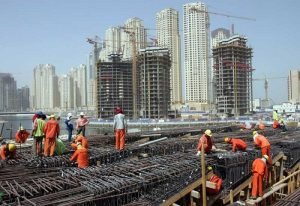If you wish to start a construction firm in South Africa, the amount of documentation required to trade lawfully and/or apply for construction bids and contracts can be overwhelming.
However, after you’ve written down exactly what you need, where you can obtain it, and why you need it, the basics are actually rather straightforward.
This article will assist you in identifying the documents you require and where to obtain them, whether you are an informal business looking to take the next step (by hiring employees and applying for RFQs, tenders, and contracts) or an entrepreneur looking to start a new construction company in South Africa.
Construction Compliance Documentation Fundamentals (What You Need And Why You Need It)
You can divide the necessary Compliance Documents into two pieces. The first segment is broad in scope. It is the paperwork that every South African firm requires in order to trade as a Pty Company, pay SARS tax, and lawfully employ people.
The second is intended for South African construction companies looking for successful tenders and contracts.
There are exceptions to whether the following documentation is definitely required or not, but these are the documents/registrations you’ll need in general. We’ve done our best to specify the exclusions, but it’s crucial to know what your specific business needs are.
Section 1: General Information
Among the most popular documents are:
Company Formation (register at the CIPC)
There are different types of companies, but if you want to build a construction company, a Pty Company is the most typical company structure. Registering for a Pty Firm would suggest that you and your company would be subject to different taxation and legal obligations.
If you already own a business, you are automatically a Sole Proprietor. This means that you must submit your expenses and income to SARS as part of your personal taxes each year.
You can consult with an accountant if you want to investigate other forms, but a Pty Company is the most common structure for construction enterprises in South Africa, and we would recommend a Pty structure.
Employer Tax Registration (at SARS and/or the UIF Office)
When you register, you may be asked to enroll in SDL (Skills Levy Development) or UIF (Unemployment Insurance Fund) to contribute a very little monthly amount for each employee. SDL contributes to a fund that will enable your workers to pursue meaningful training. UIF contributes to a fund that will provide temporary financial relief to your employees if they lose their job with you.
If your employee works for you for less than 24 hours per month, you will most likely not be contributing UIF to SARS. You should also not be concerned about SDL if your total earnings are expected to be less than R500 000 in the next 12 months.
B-BBEE Affidavit or Certificate (register with a Commissioner of Oath or with the CIPC)
If your company’s annual revenue is less than R10 million, you only require an Affidavit instead of a B-BBEE Certificate. Simply complete a B-BBEE Affidavit and have it signed by a Commissioner of Oath. This affidavit will act as your B-BBEE certificate until your yearly turnover exceeds R10 million, at which point you will require a formal B-BBEE certificate.
Letter of Good Standing (this implies COID Registration at South Africa’s Labour Department)
In addition to requiring a Letter of Good Standing (which is simply proof that you’ve registered with the Worker’s Compensation Fund and that your payments are up to date) to apply for contracts and tenders, it protects you from potentially devastating litigation.
The Compensation Fund is a type of national insurance that will reimburse your employers if they are in any way affected at work. The fund will safeguard you since it allows your part-time and full-time employees to seek compensation directly from the Fund for work-related injuries and disabilities.
You need it for tenders because contractors want to ensure that your employers will not become financially liable in the event of harm or injury.
VAT Registration (register at SARS)
The first thing you should know about VAT Registration is that it is required when your company’s turnover/sales exceed R1 million in the previous 12 months. It’s all voluntary before you reach that turnover threshold.
Section 2: Construction Documentation
Among the most popular documents are:
CIDB Register for Contractors
CIDB (Construction Industry Development Board) registration is compulsory. South African law (Act 38 of 2000) requires all construction enterprises to register in order to apply for contracts and tenders.
The only exception is if you are a home builder who is uninterested in tenders or public sector construction contracts. Another possible exception is if you specialize in providing labor or supplies to construction companies.
It is the CIDB’s role to ensure that national standards and a Code of Conduct are adhered to by all construction enterprises in South Africa.
NHBRC Registration
The National Home Builders Registration Commission (NHBRC) is a non-profit regulating agency that maintains a database of registered builders. It is critical to register your company on the NHBRC database because clients frequently seek it and it is nearly always a requirement for contract-, tender-, and building loan applications.
MBSA Membership
Master Builders South Africa is a non-profit organization. Membership isn’t often essential for tenders and contracts, but many people value membership as a network of reliable contractors.
What is the cost of registering a construction company in South Africa?
The NHBRC application price for 2020 is R745.61 and the yearly membership charge is R526.




